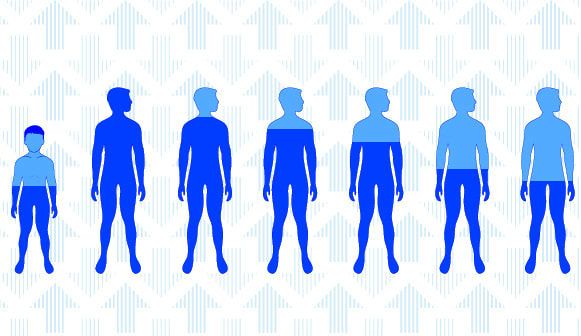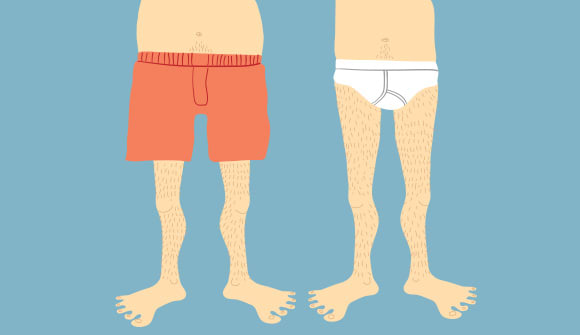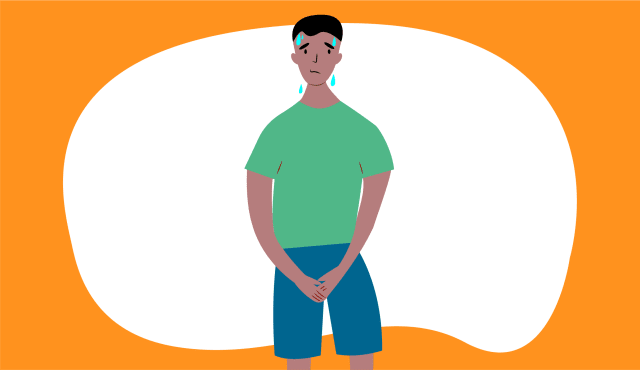Male menopause
Effects of low testosterone and ways to lift your levels.
Article Author: Johnny Woodhouse
Article Date:

Testosterone is a key hormone produced primarily in a man’s testicles. It helps regulate heart function, fuels sex drive and sperm production, and plays a role in increasing bone and muscle mass. But like everything else, testosterone levels don’t last forever: The older a man gets, the more likely he is to experience below-normal amounts.
Decreasing amounts of testosterone are a natural part of male aging. According to the American Urological Association, about 2 in 10 men older than 60 have low testosterone. That increases to 3 in 10 men in their 70s and more than half of men in their 80s.
Signs of low testosterone
Symptoms that may accompany low-T include:
- Diminished sex drive
- Erectile dysfunction
- Low semen volume
- Smaller testicle size
- Below-normal blood counts
Low levels of testosterone can also speed up bone and hair loss and increase body fat. Men with low-T may experience changes in mood and are more likely to face depression, irritability or lack of focus.
Nicholas Peterkin, MD, a family physician with Baptist Primary Care, said low-T is more common in men over the age of 80 and men who have diabetes or are overweight.
“A blood test can determine your level of circulating testosterone. Typically, a man would have to see persistently low numbers to be concerned,” he added.
The Endocrine Society recommends men get their blood tested in the morning when levels tend to be at their highest.
Causes of low-T and risk factors
Low-T can be attributed to medication side effects, thyroid problems, depression and excessive alcohol use. Even sleep apnea can affect testosterone levels.
Men may develop low-T following trauma to the testicles or removal due to cancer. Men who have had chemotherapy or radiation or are taking medicines that affect the pituitary gland, such as steroids, are also prone to low-T.
“Once a man finds out the cause of his low levels, he can take steps to improve them naturally through lifestyle choices,” Dr. Peterkin said.
Natural ways to boost testosterone levels
There are several ways to get your mojo back:
- Exercise: Getting at least 200 minutes of moderate-intensity aerobic activity a week (an average of 30 minutes a day) leads to improved testosterone levels and sexual performance.
- Lose weight: Having less abdominal fat correlates with improved desire.
- Eat right: Following a low-fat, high-protein, moderate-carbohydrate diet can help with overall health.
- Curb alcohol abuse: Heavy drinking can lead to shrunken testes.
- Sleep more: Testosterone levels peak when you snooze.
- Seek therapy: Major life stressors can impact the libido.
Men with age-related low-T may consider testosterone replacement therapy, including creams and injections, but there are infertility risks and varying opinions regarding the effectiveness of man-made hormone treatment.
"We are still learning about the causes of low testosterone and the impact it can have on a man's health. Lab testing should be performed if symptoms are concerning for low testosterone and if it's persistently low over multiple tests, we should be looking for the underlying causes. Starting testosterone replacement therapy should be a joint decision as there are potential risks associated with its use. Having a trusted provider who can help navigate the right course is key as the information is always evolving," Dr. Peterkin said.
Don't suffer with low-T
If you're experiencing symptoms that might be the result of low testosterone levels, consult a primary care physician. To find the right one for you, call 904.202.4YOU (4968) or click here to fill out an appointment request form.


